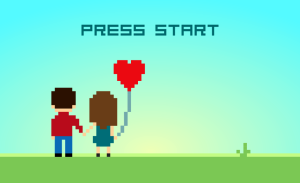People are getting older and older and demand better and better (medical) care. Also, advancements in technology and medical knowledge allow what once seemed to be incurable illnesses to be cured – or at least treated. These trends result in an ever increasing rise in the medical expenditures of countries. This begs the question: how far should we go in saving a patient’s life? What is the value of a human life? Should we be prepared to save someone at all costs? Or should we think about the financial consequences of our decisions? And if so, what is the (financial) limit?
There are several ways in which this question can be answered. One response would be that we should go as far as possible in trying to save a person’s life. That is, as far as possible given the boundaries set by our medical and technological knowledge. And although this might cost us (as a society) a lot of money, the money spent on saving a person’s life is nothing compared to the value gained by prolonging their stay on our planet; the emotional gain experienced by the person – and not to forget his family – is of an extraordinary value: a value that can impossibly be expressed in terms of money. Therefore any means available should be employed in order to let people experience (an extension of) life.
However, given that the value of a human life would be ‘impossible to express in terms of money’, why then should we come to the conclusion that – because of that – we should be prepared to save a person’s life at all costs? Wouldn’t that be a rather arbitrary decision? After all, given that (human) life is of a such value that it is inexpressible in terms of money, why then even bother to make the transition to talk about costs? If a human life would truly be invaluable, it would be just as nonsensical to talk about trying to save a person’s life at all cost as it would be to say that we shouldn’t be prepared to pay any money in order to do so, right? The value of life is after all of an entirely different dimension; irreducible to monetary terms in any sense – no matter whether this value is in millions or pennies.
Well, that seems a little radical, doesn’t it? Another option would be to say that we should go as far as could be considered economically reasonable. In welfare countries where civilians have to pay relatively high taxes, that for a huge part are gobbled by the nation’s medical expenses, it seems fair to not only think in the interests of the patient and his family but to also consider the economic prospects of the relevant patient. After all: would it be reasonable for society to pay a huge sum of money to save someone’s life, while the person being saved might be unable to ‘repay’ (in terms of making an economic contribution to society) the medical expenses in any sense? From a purely utilitarian viewpoint, this seems to be an unwise (and even a wrong) decision. Surely, it might be ‘fair’ to save the person’s life, in the sense that the person probably has paid taxes all his life (taxes that were used for paying the medical treatments of others). But that doesn’t change the fact that, at this point in time, it would be unprofitable/utility-degrading to pay for the patient’s treatment.
A solution to cover this seemingly unfair attitude – although it might sound counter-intuitive – would be to make people decide for themselves how much they are prepared to pay for saving a patient’s life. Subsequently, it would be this amount of money that the person would contribute (in the form of taxes) for covering the country’s medical expenses. However, the other side of this plan would be that, whenever the tax payer himself would have to be treated in hospital, this person’s treatment costs will be compared with the amount of money he contributed to society for covering its medical expenditures/saving a person’s life. Based upon this comparison will be decided whether or not the person should be treated. When the contribution-fee is decided upfront – before the person ‘officially’ enters society (let’s say at the age of 18) – no conflict of interests can occur, and everyone’s wishes are taken into account.
A totally different option would be to shove the full responsibility for covering one’s medical expenditures down to someone’s own wallet: to make people pay for their own medical costs. After all: who would mind a person spending thousands of dollars coming from his own pocket? No-one I suppose. Unless, of course, this person is you. Because what to do if you don’t have the money required to cover your medical expenses? It doesn’t seem fair to let you die just because you haven’t earned as much money as the richest ten percent of the population, right? However, even if you would be the person becoming sick and having to pay for your own medical costs, you might still consider this libertarian attitude towards ‘paying my own costs’ to be the true righteous manner to live your life.
It is in no way an easy question. It is about much more than medical costs/finance: it’s about values/ethics, which implies that there is likely to be no definite answer to this question.
But what do you think?

